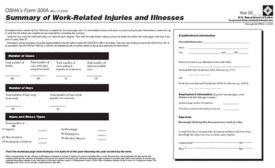News
Cars vulnerable to cyber-attacks, too
Feds are taking steps to ensure automotive safety
October 26, 2016
Preventable cancers taking a toll
Cigarettes and alcohol are top two causes
October 25, 2016
Never miss the latest news and trends driving the safety industry
eNewsletter | Website | eMagazine
JOIN TODAYCopyright ©2024. All Rights Reserved BNP Media.
Design, CMS, Hosting & Web Development :: ePublishing










